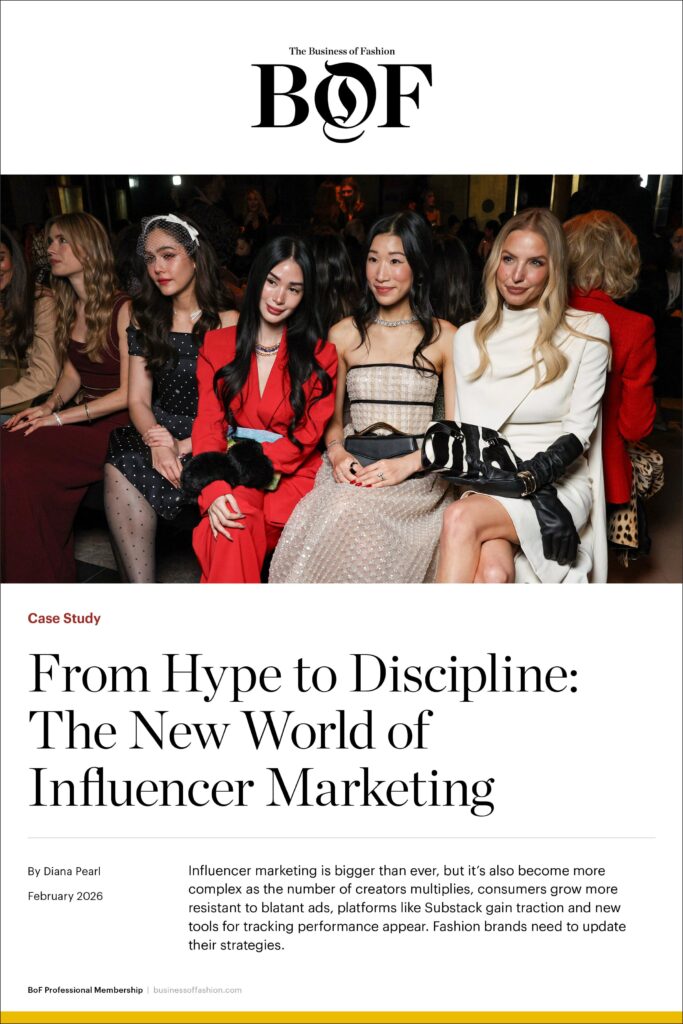It seems the ‘quiet luxury’ trend of recent seasons is waning, with a return to ‘maximalism’ and bolder aesthetics in jewellery trends a key indicator of what’s to come in 2026. While Pinterest’s 2026 Trends Report points to this year being all about elevating looks with heirlooms, colour and more flamboyant pieces, this is also backed up by experts at Dawsons Auctioneers. Their recent sales data shows that demand is shifting towards more ostentatious statement pieces, with some of the highest-selling items offering insight into changing tastes in luxury jewellery. Standout trends include: Colourful pieces are set to dominate 2026 style trends, with a focus on coloured gemstones and slightly unusual gems. Chunkier, textured and hammered, mid-century pieces are coming back in fashion. Gold outshines all other precious metals, by far. Natural pearls emphasise a premium on scarcity. Jonathan Pratt, Managing Director at Dawsons Auctioneers and TV expert, said: “While it can be difficult to point toward definitive trends, it looks like the days of ‘stealth wealth’, an aesthetic once so dominant in previous years, might be fading. In many areas of art and design we are seeing a return to maximalism, and jewellery trends are no exception so far. “We are seeing at once a resurgence of colour in the sales of rubies, emeralds, and sapphires, as well as a premium placed on rare provenance for the stones themselves, which is often an indicator of both their authenticity and exclusivity. “This demand for exclusivity is also seen in the high prices commanded by natural pearl items, which are much more sought after than human-induced ‘cultured pearls’. “Likewise, the rarity of old cut diamonds, as recently seen in Taylor Swift’s engagement ring, means that these items perform especially well at auctions.” In another snub to contemporary minimalism, mid-century styles from as far back as the 1940s are also experiencing a comeback. The auctioneers have observed a renewed interest in previously unpopular pieces from makers like Andrew Grima and Kutchinsky, typically featuring chunky yellow gold and textured organic finishes, also often featuring coloured gemstones. Recent standout sales of that type include an emerald-cut diamond solitaire ring by Kutchinsky, featuring a central diamond of an estimated 5.45ct which sold for £22,000, and a diamond necklace going for £15,000. An Andrew Grima cocktail ring also recently went for the hammer price of £4,000. Additionally, it was recently reported that gold value has reached an all-time high, rising above the price of £3,659 per ounce. Dawsons sales data follows that trend, showing gold “outshining by far” any other precious metal in both quantity sold and hammer price. Yellow Gold is also a characteristic of the chunkier mid-century pieces that have attracted recent demand. With the combination of a change in stylistic tastes and its soaring price, gold “continues its longevity at once as a marker of luxury” as well as a popular vehicle for wealth creation among unconventional investors. Pratt added: “The trend towards more ‘showy’ pieces also coincides with newfound appreciation for mid-century jewellery that was unpopular for a very long time. Chunkier gold pieces from the 1970s all the way back to the 40s are currently experiencing demand that we haven’t seen in a long time.” Recent auction sales and prices also suggest that colours are once again “all the rage”, with coloured gemstones experiencing an explosive resurgence in auction popularity. Special importance is given to stones with rare and coveted origins, such as the Kashmir sapphire found on a Cartier brooch which Dawsons recently sold for a whopping £340,000 – a 325% increase from its original estimate of £80,000. A Victoria sapphire and diamond cluster bangle also went for £70,000, after an original estimate of £15,000. Other notable jewellery sales featuring coloured gemstones include an Edwardian dress ring featuring a Burmese ‘Pigeon blood’ ruby with a hammer price of £3,300, as well as a Colombian emerald and diamond cluster ring selling for £26,000. Buyer interest seems to be driven by extreme rarity of gems coming from mines in specific localities, and Dawsons expects their popularity to keep rising. Continuing the trend for rarity and exclusivity, ‘natural’ pearls have seen a surge in interest, as shown by the recent sale of an early 20th Century natural pearl necklace with a diamond-set clasp for £14,000 (from an initial guide price of £1,200) and another Edwardian example selling for £2,400.



